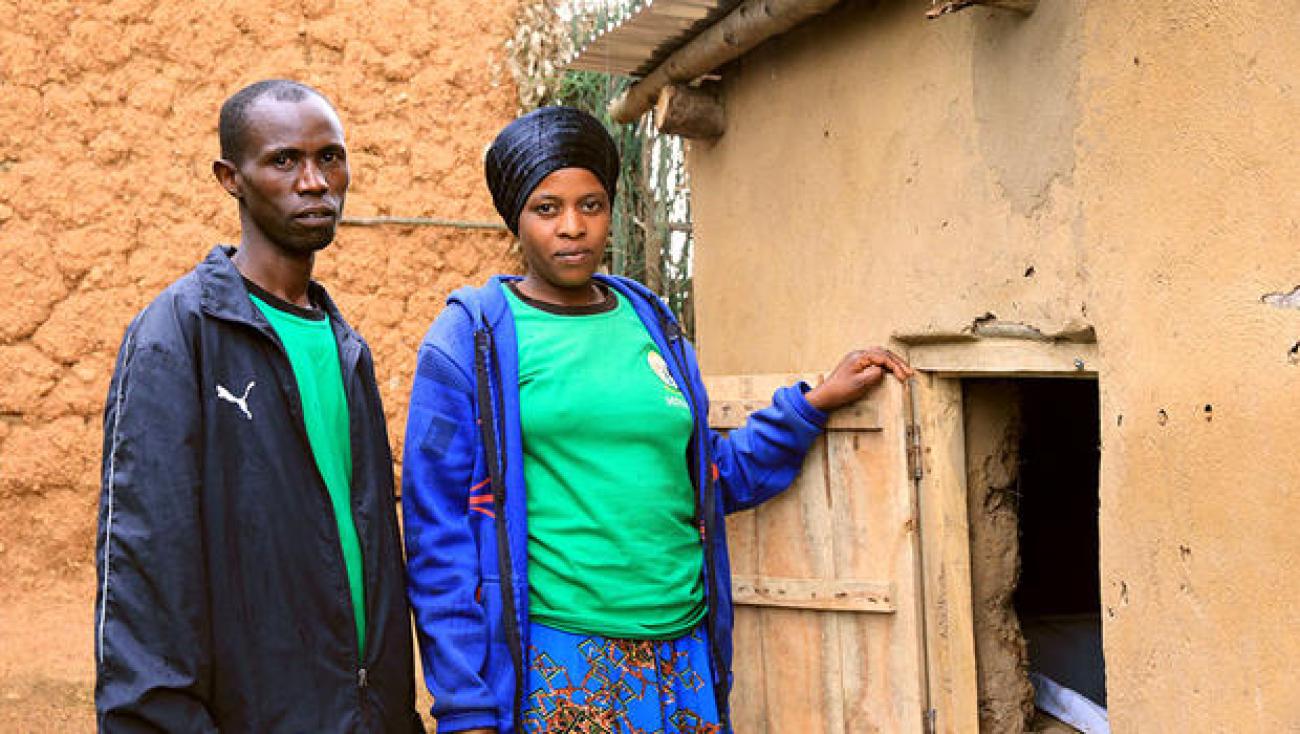Alphonsine Nyiranzeyimana, a farmer from Cyahinda, in the southern part of Rwanda, says that learning new farming techniques completely changed her life. She’s not exaggerating. Today, Nyiranzeyimana is the leader of a farmers’ cooperative and the yield on some of her crops has more than doubled.
The agricultural sector accounts for a third of Rwanda’s GDP and 76 per cent of economically active Rwandan women are engaged in farming activities. Yet, they don’t have the same access to land, production inputs, finance or markets as men. As a result, women farmers are mostly relegated to subsistence farming. While their families rely on their harvests as the main source of food and nutrition, the lack of quality agricultural inputs and technology reduces the yield and diversity of their crops. This in turn impacts the food and nutritional security of their families.
Women farmers like Nyiranzeyimana realize that learning innovative approaches to farming and accessing the necessary inputs is key to unlocking a more secure future for themselves and their families. Their needs and the drive to improve their livelihoods are at the heart of the Joint UN Programme, “Accelerating Progress towards the Economic Empowerment of Rural Women”.
A collaboration between the World Food Programme (WFP), the Food and Agriculture Organization (FAO), the International Fund for Agricultural Development (IFAD) and UN Women, and funded by the Governments of Sweden and Norway, the programme works with rural women and their communities to build sustainable livelihoods, engage women in shaping laws, policies and programmes and to improve food and nutrition security.
“Since joining the programme, the yield of my field has increased so much! For instance, I have learned how to plant beans in straight rows and how to use fertilizers. Where I needed 10 kg of bean seeds before, now I only need 3 kg for the same quantity of harvest,” explains Nyiranzeyimana. “Having shared the knowledge gained from the programme with my husband, together we have increased the fertility of our land and multiplied our production.”
The programme has directly impacted the lives of 17,363 farmers in Rwanda and currently supports 20 farmers’ cooperatives similar to Nyiranzeyimana’s.
“Through the programme, we learned how to build a water harvesting system, and now we have a small cistern behind our house which collects rain water from the roof. This has made a lot of difference. Before, we had to walk very far to collect water for farming, for our animals, cleaning and washing. Now we have a lot more time available for other activities, and the children do not have to go to fetch water anymore. We even have enough water to share with our neighbors” she adds.
A mother of three and currently the Chairperson of the Urumuri Cooperative, Nyiranzeyimana has inspired other women to take up an active role within their communities. Her husband Jérôme Niyirema says his wife’s participation in the programme has benefited the whole family.
“I am proud of Alphonsine’s work and that she is able to lead other people,” he shares. “My work for the Cooperative can be very time consuming and it was not always easy to manage different tasks, but my husband is supporting me at home.”
The couple is now planting a variety of crops in their farm—beans, maize, cassava and potatoes. A small vegetable and fruit garden is growing at the back of their house. They have already managed to buy some chickens that lay eggs and one cow that provides milk for the family. Next year, they plan to buy more land and add cattle farming, which will significantly improve their household income.
“My children are 3, 6 and 12 years old; they now get to drink milk in the morning, and I have been able to afford healthcare insurance for my family,” says a smiling Nyiranzeyimana.
The joint programme will continue in 2019, reaching new beneficiaries. Schadrack Dusabe, UN Women National Program Coordinator, said: “The programme will reach out to 900 new beneficiaries, in addition to the current 1,260, to support them in the uptake of climate-smart farming and post-harvest handling techniques. It will also teach them skills in cooperative management, the use of Voluntary Savings and Loans schemes and entrepreneurship skills.”
Going forward, UN Women and partners will continue to build on these achievements to empower women farmers and sustain the impact of the programme throughout the country.










